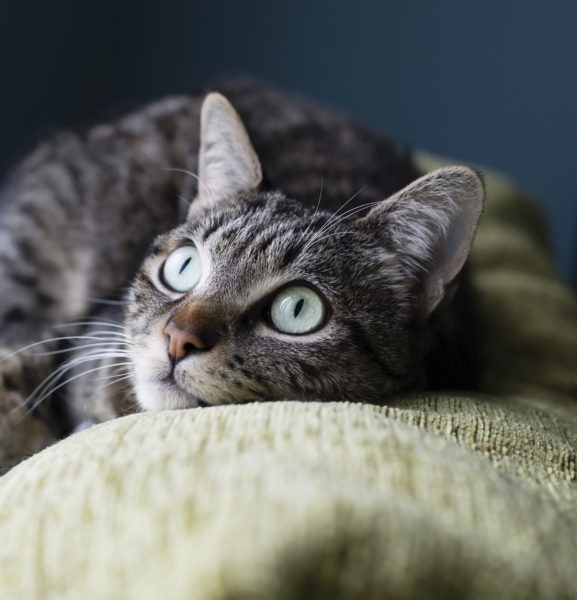What is Feline Leukemia Virus (FeLV)?
Feline Leukemia Virus (FeLV) is a common infectious disease in cats. It is most commonly found in environments where there are a lot of cats, like a multi-cat household, and where feral cats live in a free-roaming environment.
Signs and Symptoms of FeLV
The signs and symptoms of FeLV vary greatly depending on the infected cells. Some cats show mild symptoms, but many cats don’t have any noticeable symptoms. Signs may include:
- Fever
- Loss of appetite
- Weight loss
- Lethargy
- Poor coat or fur condition
- Enlarged lymph nodes
- Pale gums
- Infections of the skin, bladder, and upper respiratory
- Reproductive problems in unspayed females
Eventually, FeLV-associated diseases occur and can include:
- Anemia
- Liver disease
- Intestinal disease and reproductive problems
- Lymphoma or leukemia
- Chronic respiratory infections
- Chronic gingivitis and stomatitis (inflammation of the gums and mouth)
- Poor healing of wounds and abscesses
How is FeLV Transmitted?
Transmission occurs through the saliva, feces, milk, and urine of an infected cat. The most common transmission route is through saliva. FeLV is transferred through grooming, licking, biting, shared dishes, and shared litter pans. An infected mother can transfer it to her kittens during pregnancy or nursing. Close cat-to-cat contact is required to transmit the disease. FeLV can also be transmitted through a blood transfusion. Young cats, especially those under 4-6 months of age, are the most susceptible to FeLV since their immune systems are not fully mature. FeLV cannot be transmitted to people, dogs, or other animals.

Testing for FeLV
You can diagnose FeLV with a simple blood test that is available at most veterinary practices. The two types of blood tests most commonly used for diagnosis:
ELISA (enzyme-linked immunosorbent assay)
This test identifies FeLV proteins in your cat’s blood and can identify cats with early infections.
IFA (indirect immunofluorescent antibody assay)
This test must be sent to a diagnostic laboratory and can detect when the disease has progressed into the secondary stage. Generally, cats with an IFA-positive test result have a poor long-term prognosis.
All new cats or kittens should be tested for FeLV. Any cats that have been exposed to a known FeLV-infected cat, cats with outdoor access, and any cats that are ill, should also be tested. Due to the nature of the virus, an infected cat may not test positive for about 60 days after exposure.
Vaccination for FeLV
Vaccination against FeLV is recommended for all cats. It is especially recommended for cats with access to outdoors, cats living with known FeLV-infected cats, and in multi-cat environments. FeLV vaccination is also recommended for all kittens since they have an increased susceptibility to the virus.
Treatment and Management
Unfortunately, there is no cure for FeLV. If your cat tests positive for FeLV and has a progressive infection, he will remain infected for the rest of his life. A FeLV vaccination is not beneficial if your cat is already infected. FeLV infected cats need to remain indoors and should be neutered.
Partner with your veterinarian to help your cat feel well for as long as possible and protect them from secondary infection. Together you can help manage your cat’s condition, including the symptoms and any FeLV-associated diseases that may develop.


